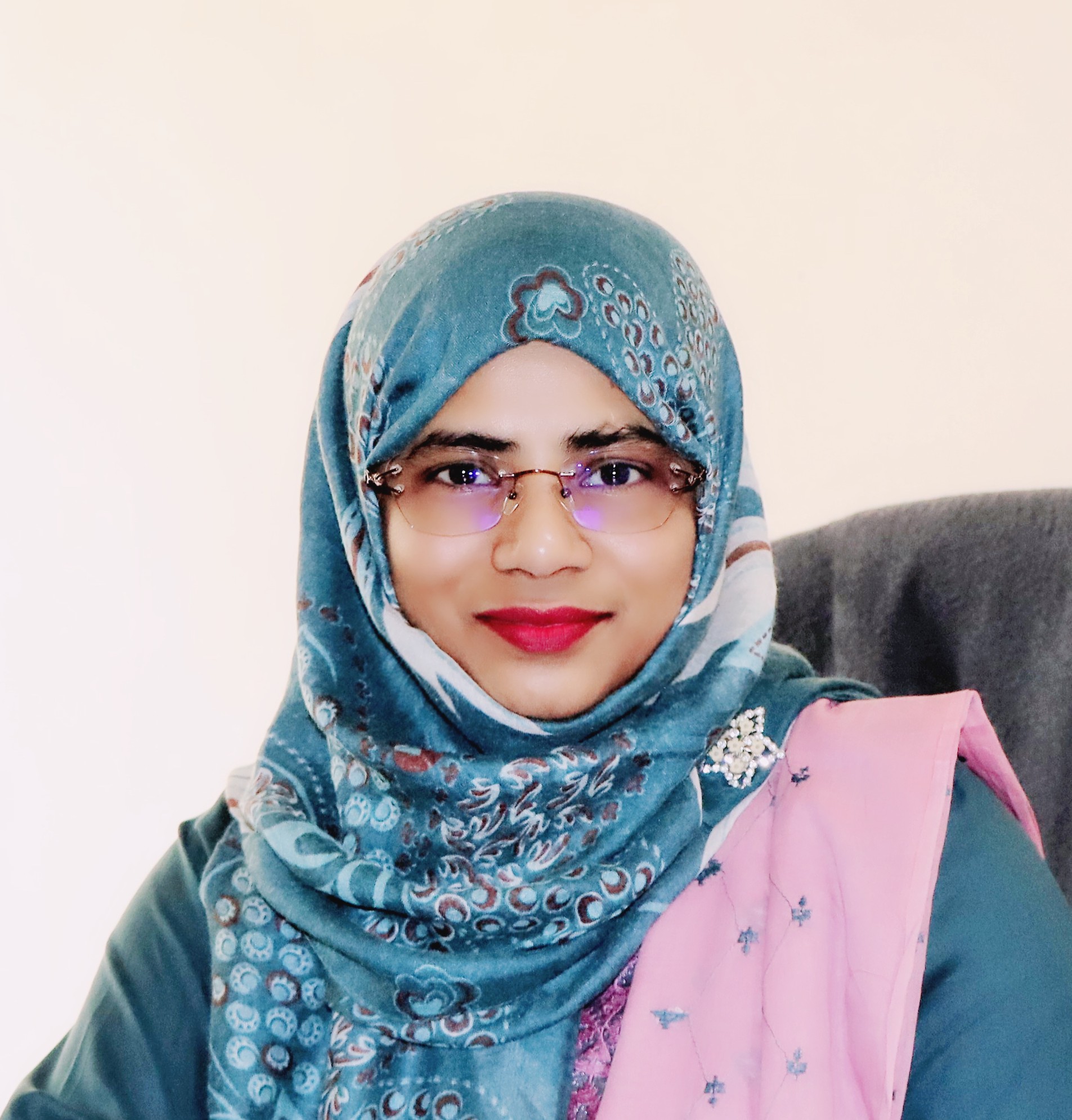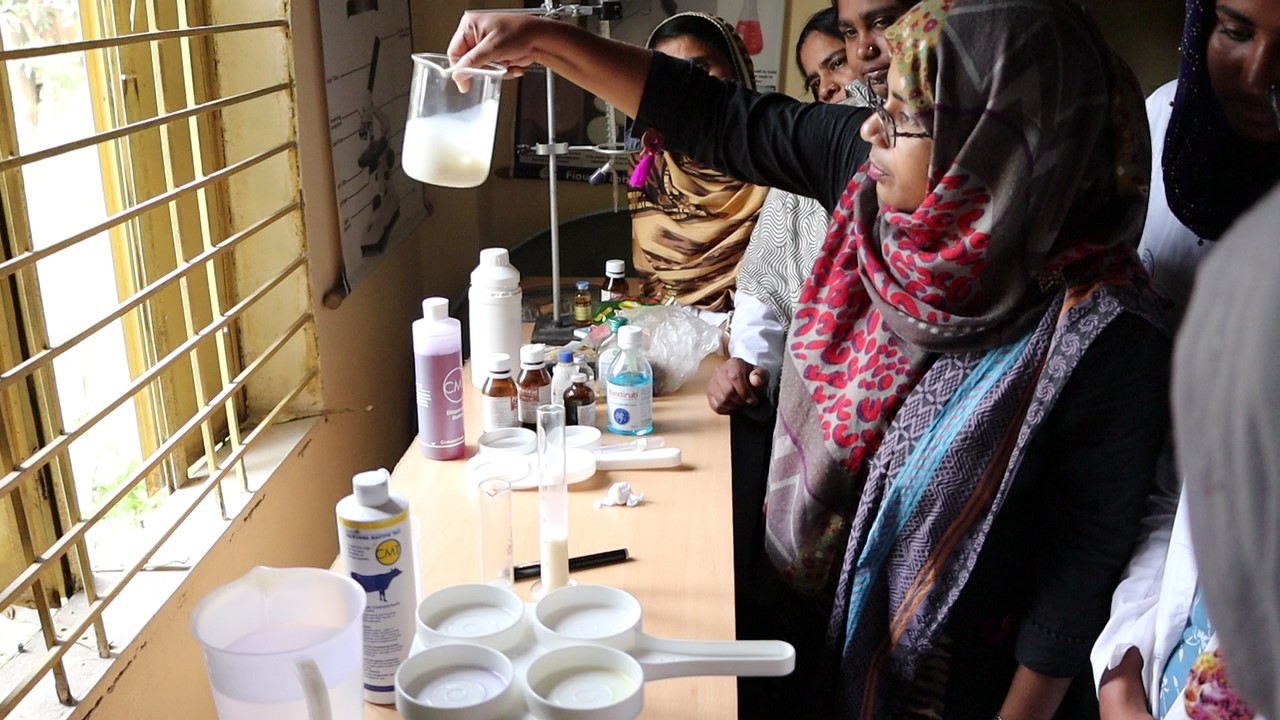Dr. Salma Sultana
BANGLADESH
Dr. Salma Sultana, Founder and Chairman of the Model Livestock Advancement Foundation, has been named the 2020 recipient of the Norman E. Borlaug Award for Field Research and Application, Endowed by the Rockefeller Foundation. Sultana is recognized for her innovative model providing veterinary outreach, treatment and education to thousands of small-scale farmers in Bangladesh. She founded Bangladesh’s first vocational training institute to educate hundreds of livestock service providers and create sustainable employment opportunities, especially for women and young people.
Sultana’s passion for veterinary medicine led her to Chittagong Veterinary & Animal Sciences University (CVASU) in Bangladesh, where she received her Doctor of Veterinary Medicine in 2010. She expanded her studies by undertaking postgraduate training in India at Tamil Nadu Veterinary and Animal Sciences University. Sultana returned to CVASU and earned a master’s degree in pharmacology in 2014. While working on her master’s degree, she was concurrently employed as an Assistant Researcher at CVASU.
As Sultana began her professional career, she realized the significant gap between the availability of and demand for livestock treatment in the rural and peri-urban areas of Bangladesh. She observed that farmers, whose livelihoods are heavily dependent on their livestock, often do not have access to trained veterinary practitioners and affordable veterinary treatments. Farmers therefore frequently called on untrained village doctors or treated animals on their own.
Sultana also observed that farmers and village doctors often have no institutional education or knowledge about livestock health management and veterinary science, resulting in unsuccessful treatments, high mortality rates and the improper use of drugs such as antibiotics. The deaths of these animals not only represent a loss of income for farm families, but also a loss of family savings and investments. Additionally, over time, improper treatment of animals with medications hastens multi-drug resistance and can lead to life-threatening health complications in people and animals.
To address the struggles faced by small scale livestock producers across Bangladesh, Sultana founded the Model Livestock Institute in Dhaka in 2014. The first of its kind in the country, the Model Livestock Institute is a vocational livestock training center. The mission of the Institute is to train livestock service providers to increase the number of providers and the quality of service. The center offers advanced certificate programs, short-term training and need-based training, focusing especially on training women and youth. Their efforts to date have produced more than 500 youth entrepreneurs and 100 livestock service providers.
Realizing the profound need for emergency veterinary services, Sultana next founded the Model Livestock Institute Veterinary Hospital. This private hospital was the first non-government, outdoor veterinary hospital in Bangladesh. Sultana’s operation offers multiple services, including treatment, surgery, and vaccinations of livestock, pets and birds, farm visits and more. The hospital includes laboratory facilities for providing evidence-based animal health services and for facilitating accurate research.
In 2018, the Hospital developed VetSheba, a call center and online service that farmers can use to speak directly to a doctor or expert consultant and be referred to receive a check-up from a livestock health service provider in their area. This system makes the Hospital even more responsive to farmers’ needs. Since its start in 2015, the Hospital has provided animal health support to more than 5,000 farmers, substantially reducing economic losses for them and their families.
In 2016, Sultana founded the Model Livestock Advancement Foundation. The Foundation’s mission is to promote rural development through focusing on women’s empowerment, farmer awareness, animal rights, and food and nutrition security. In her pivotal leadership role at the Foundation, Sultana continues her successful efforts to improve rural livelihoods, with training and education of farmers and the public at the forefront. For example, her “One Health Approach” program has trained 5,000 students and 200 butchers on food-borne diseases and zoonotic disease transmission. Another recent project trained 100 women smallholder farmers in goat husbandry and connected them to markets and wholesalers for their production. Sultana has also written numerous books and manuals in Bengali to further distribute information and provide effective outreach.
Most recently, Sultana is providing new assistance during the COVID-19 pandemic. When lockdown conditions made it difficult for farmers to get a continuous supply of livestock feed, she leapt into action to provide feed supplements. She also started the “Safe and Green Bazaar,” which collects and disinfects animal products from farmers whose supply chains were disrupted, and then delivers those products to consumers who order online.
The wide variety of efforts championed by Sultana, from veterinary care and research to farmer outreach and public education, have improved the lives of thousands of individuals through employment, empowerment and improved nutrition. These achievements have not been easily won. As a woman in a male-dominated field operating in situations with less than adequate resources, Sultana has encountered numerous obstacles, shown great persistence and innovation, and demonstrated exemplary accomplishment in her efforts to overcome the food security challenges in her country.
Sultana daily answers Dr. Norman Borlaug’s call to “take it to the farmer.” As she continues to work toward a sustainable livestock sector that contributes to a food secure and poverty-free Bangladesh, she impacts and inspires the women veterinarians, smallholder farmers, and young entrepreneurs to continue this mission.




